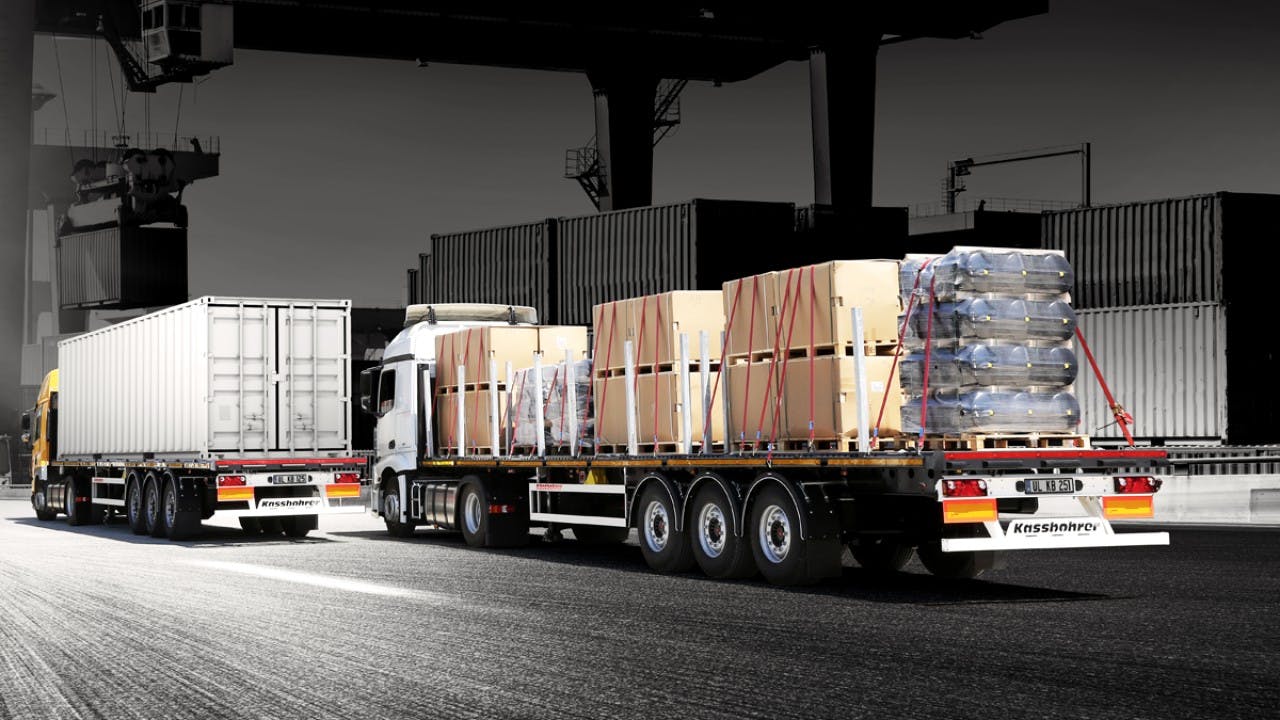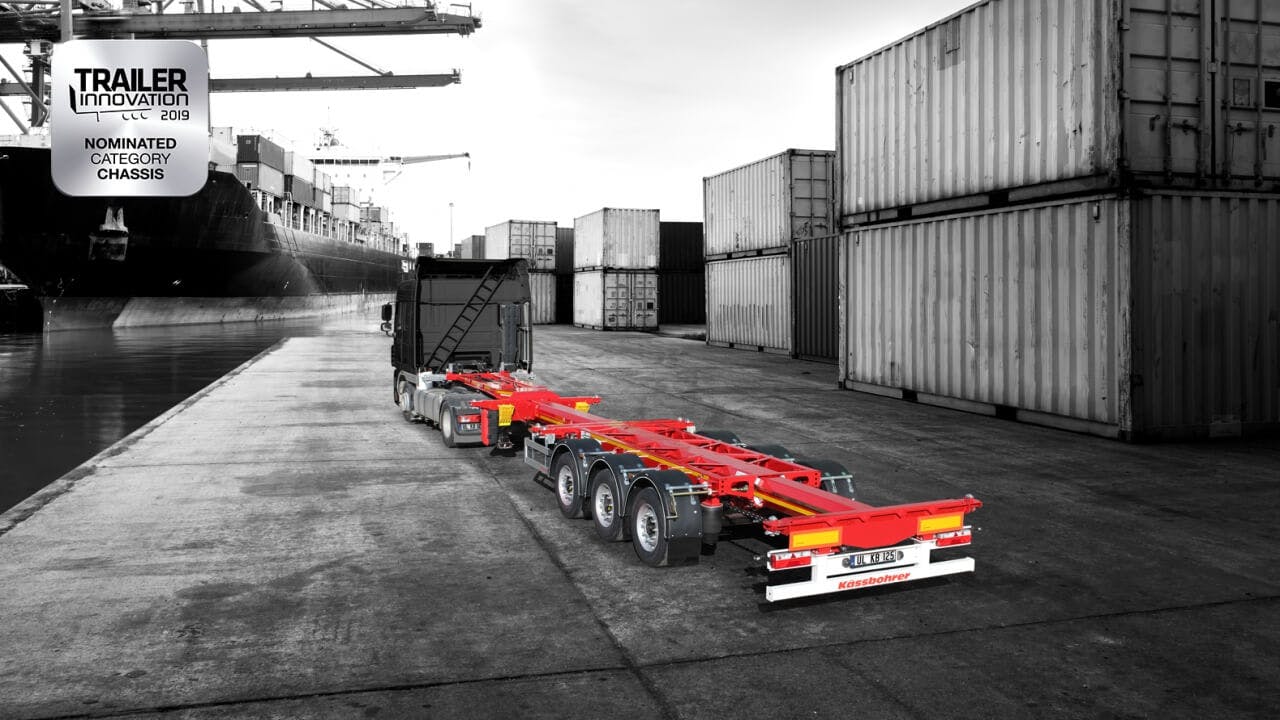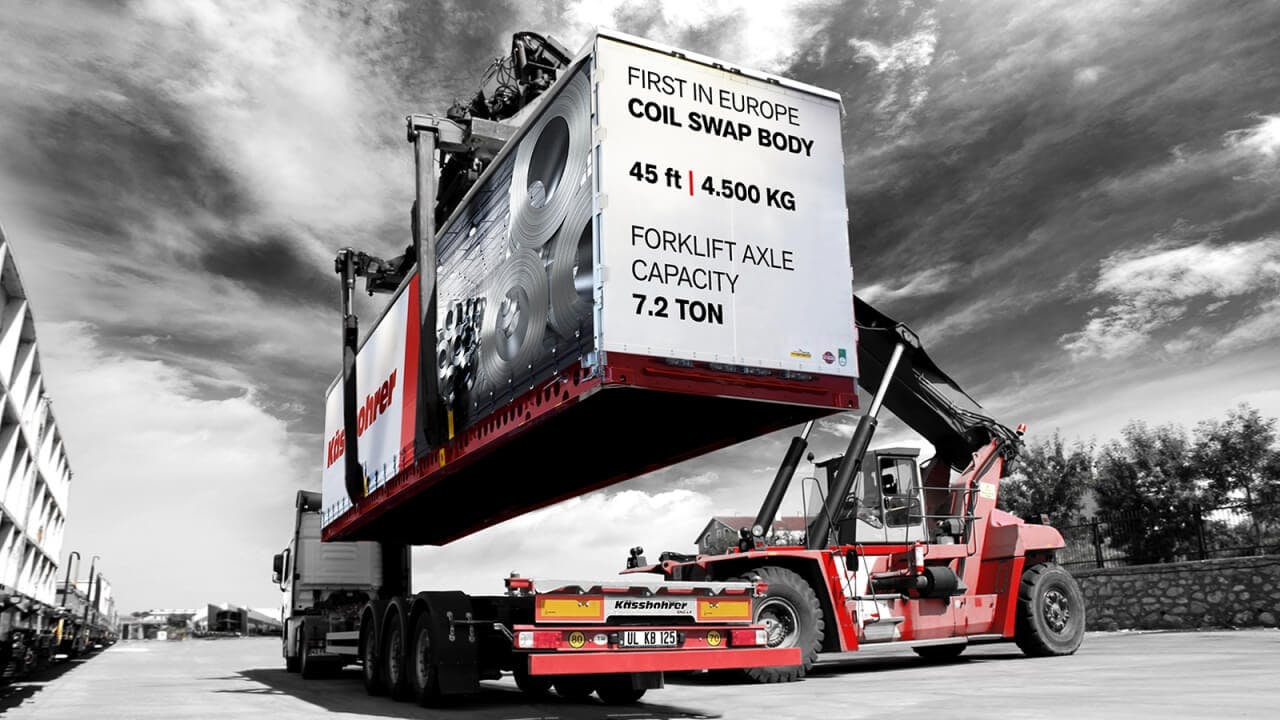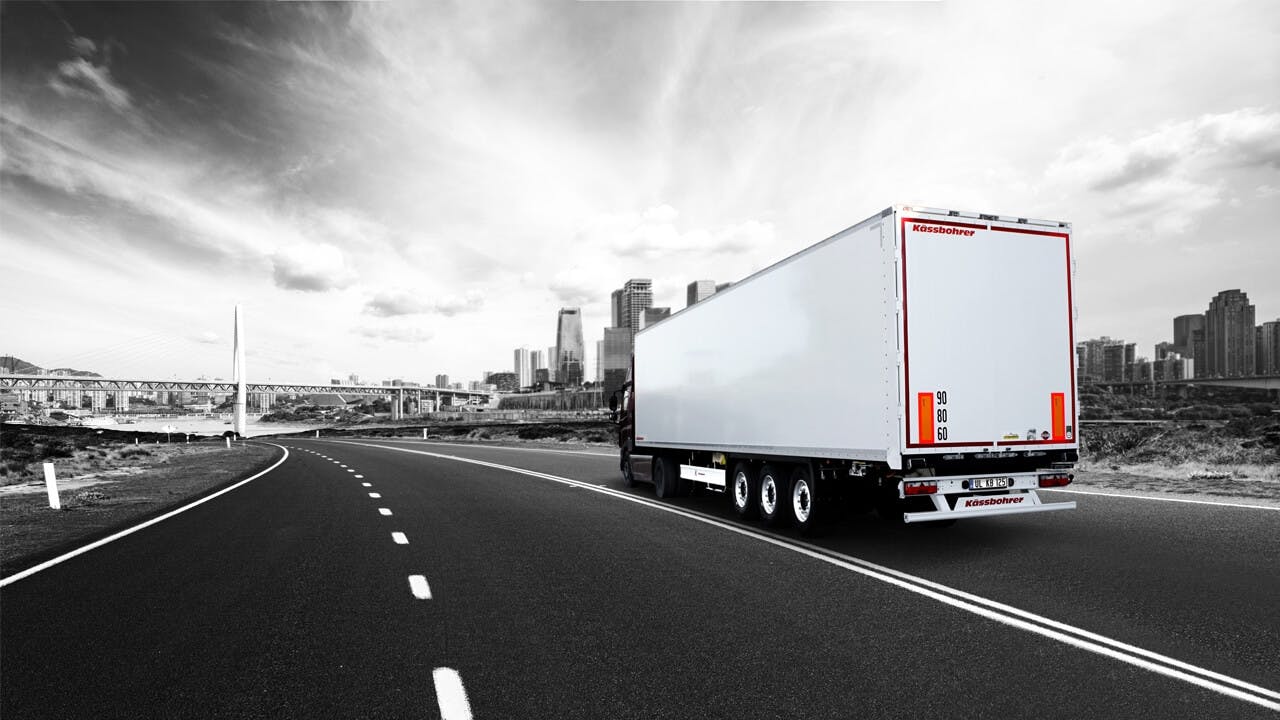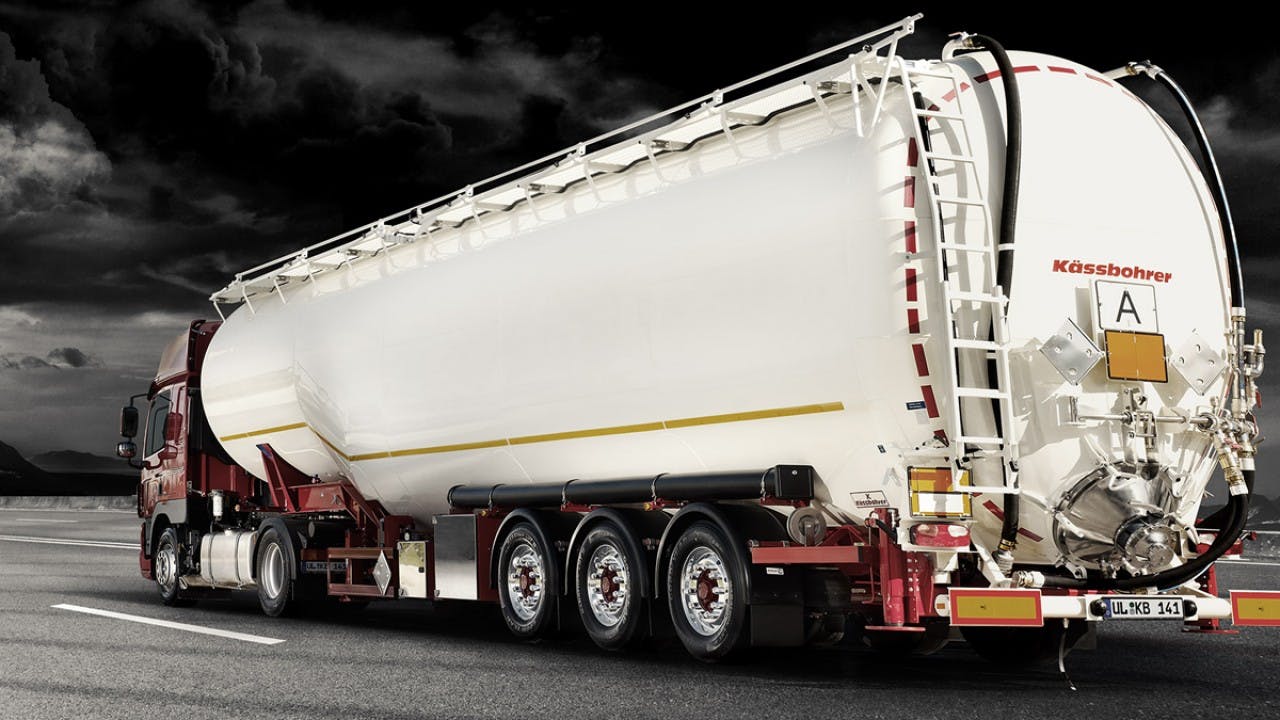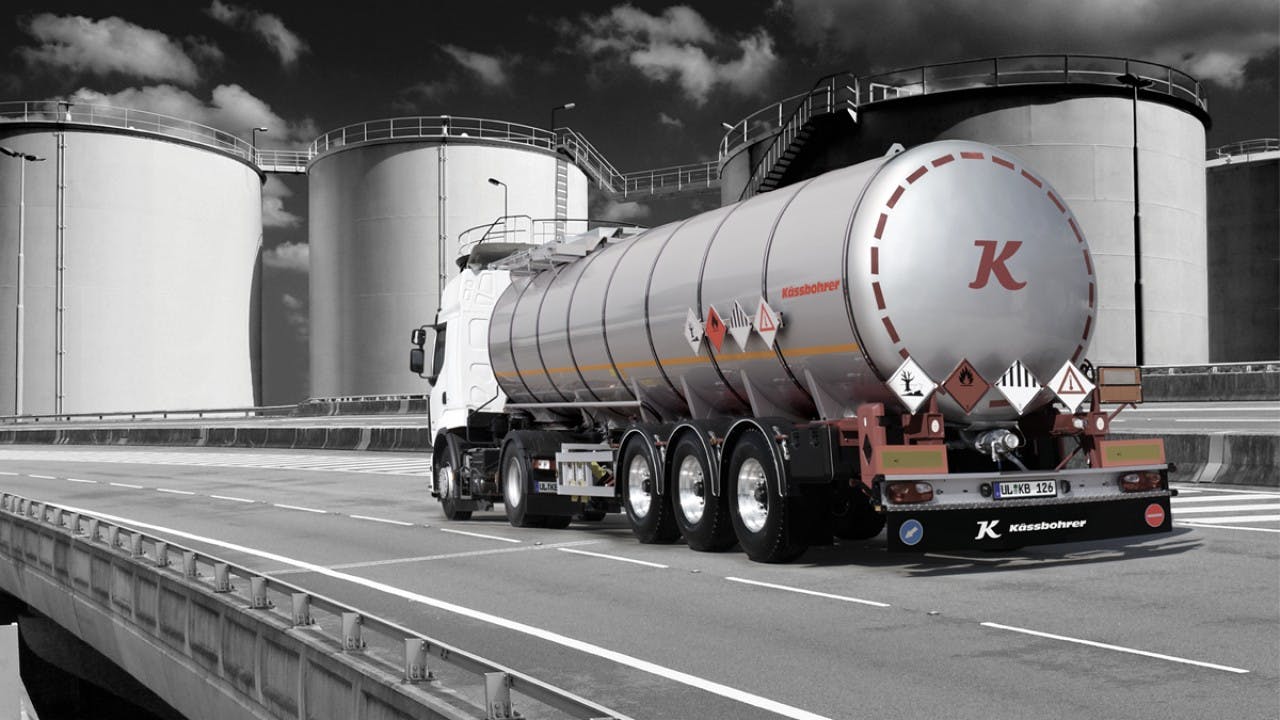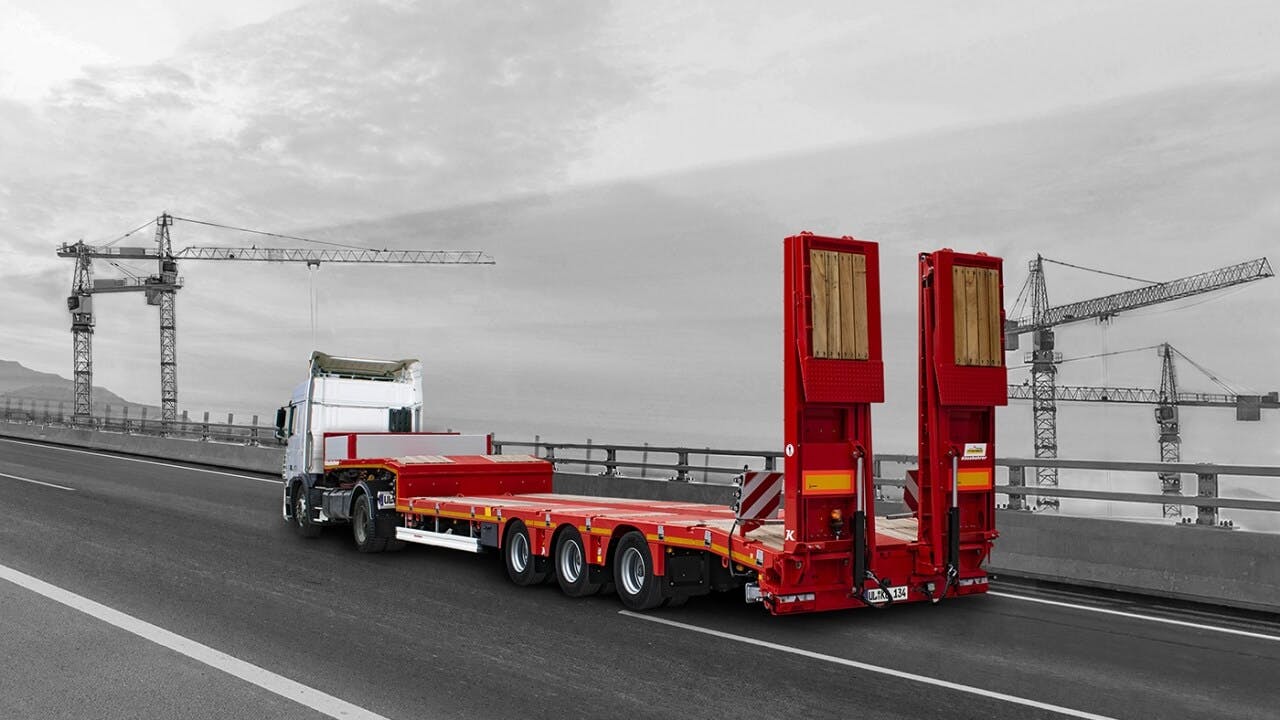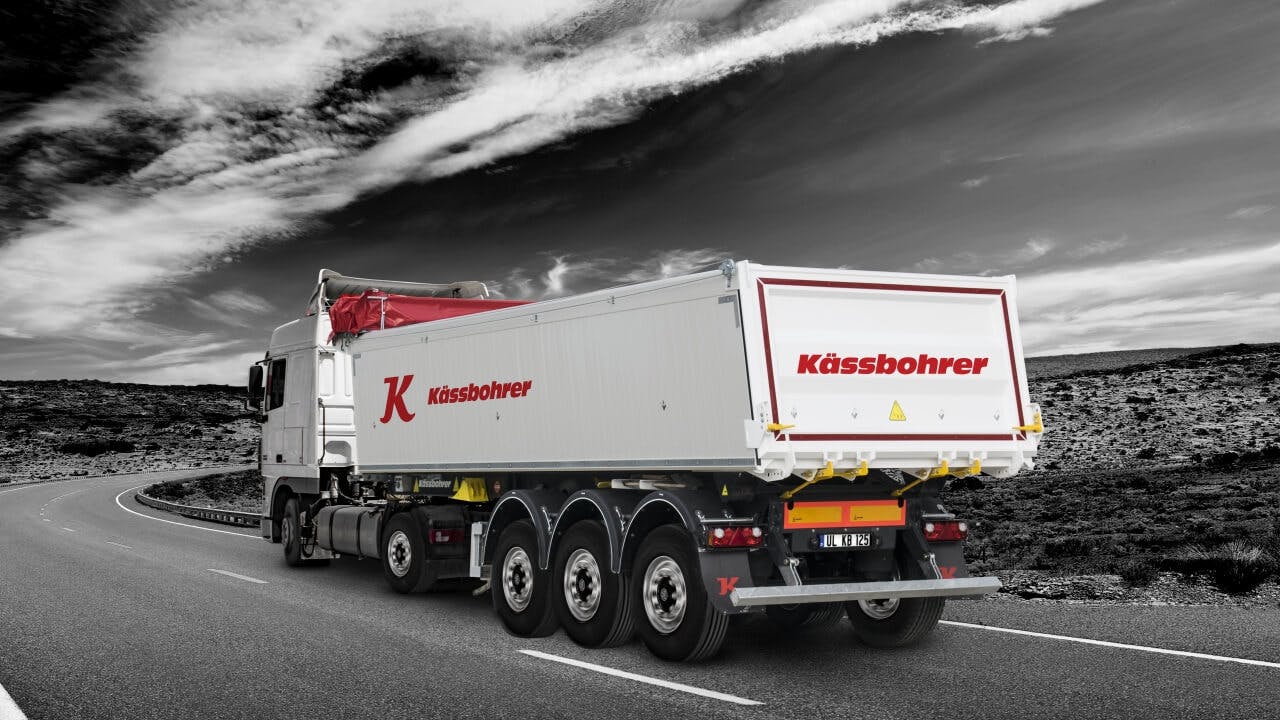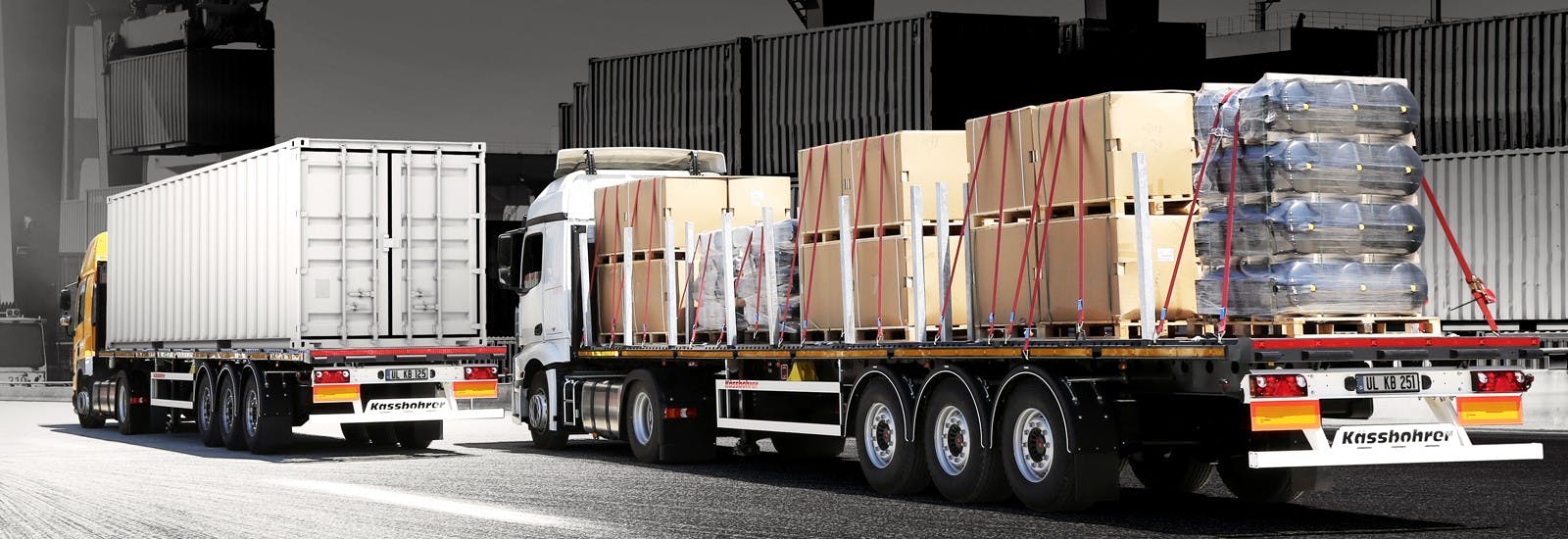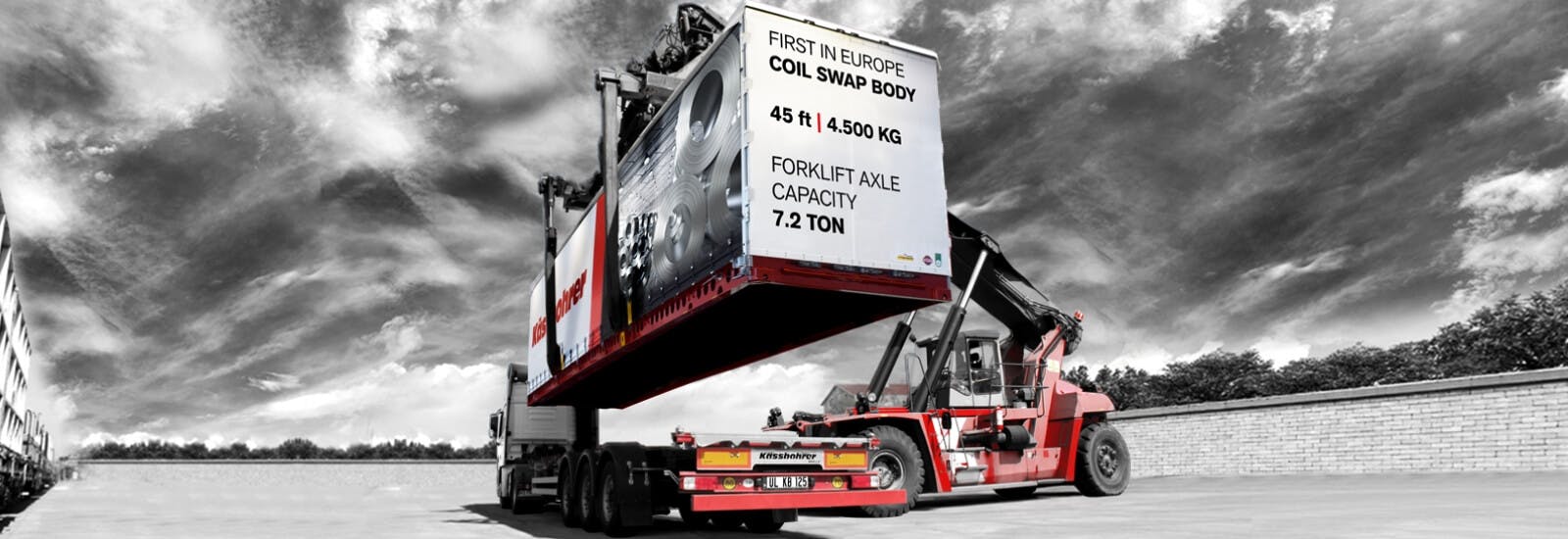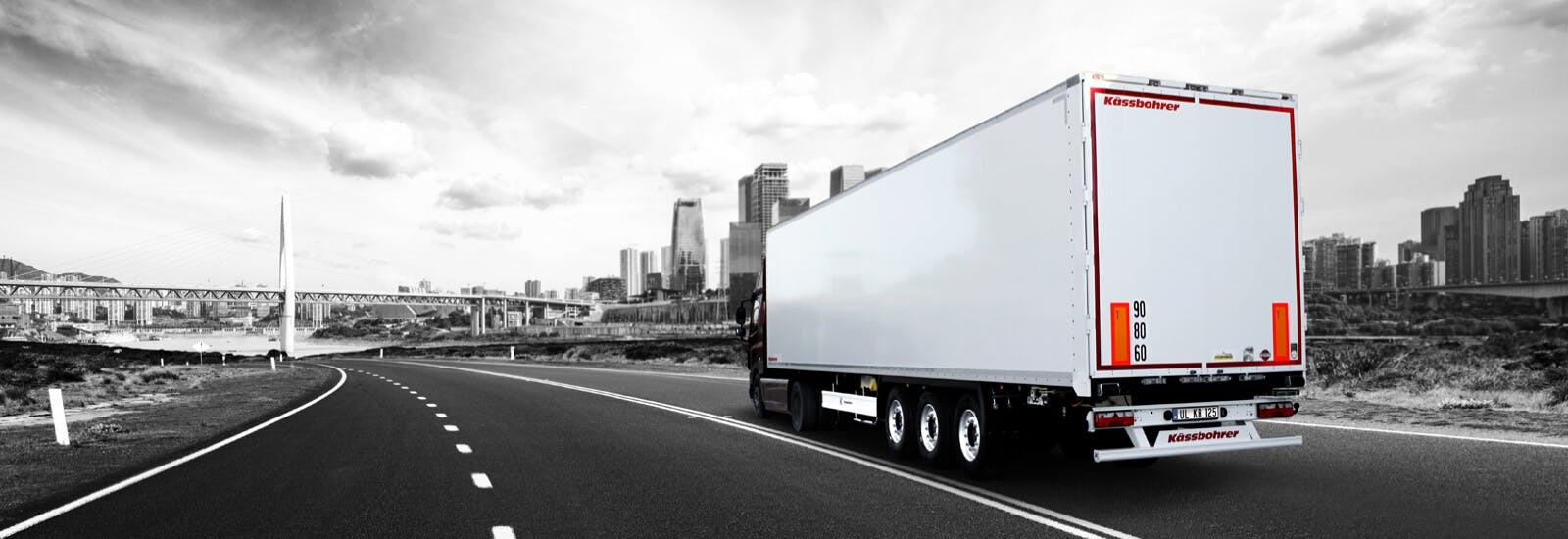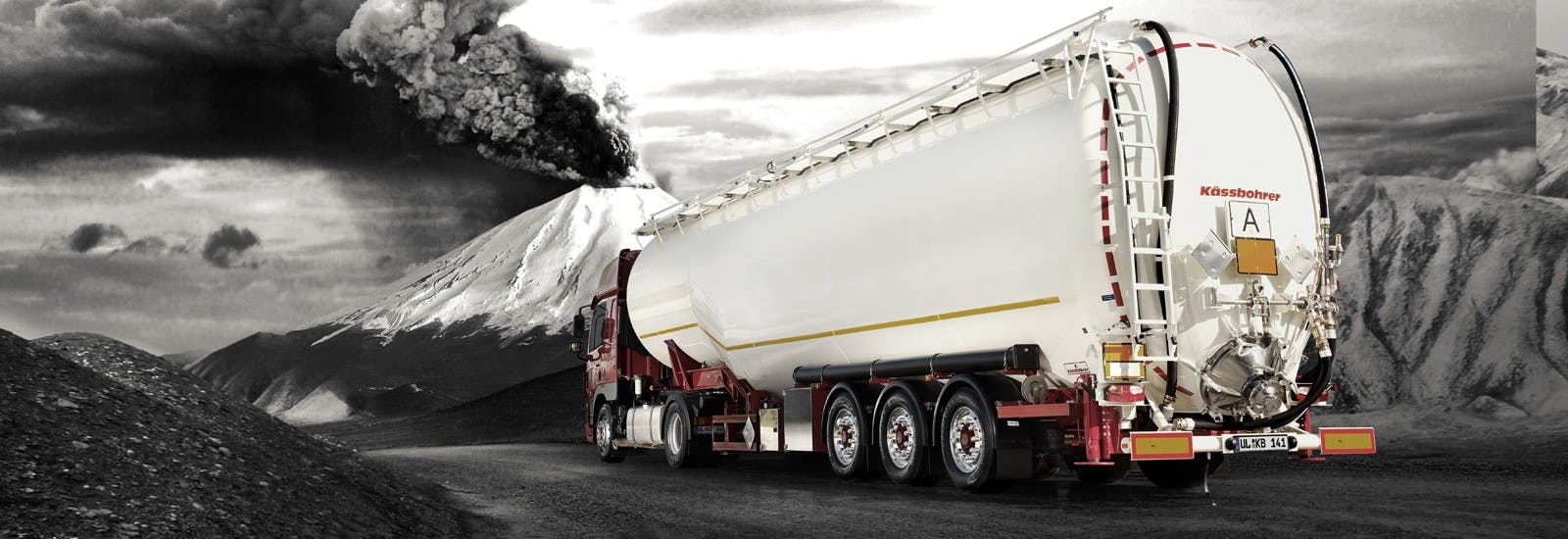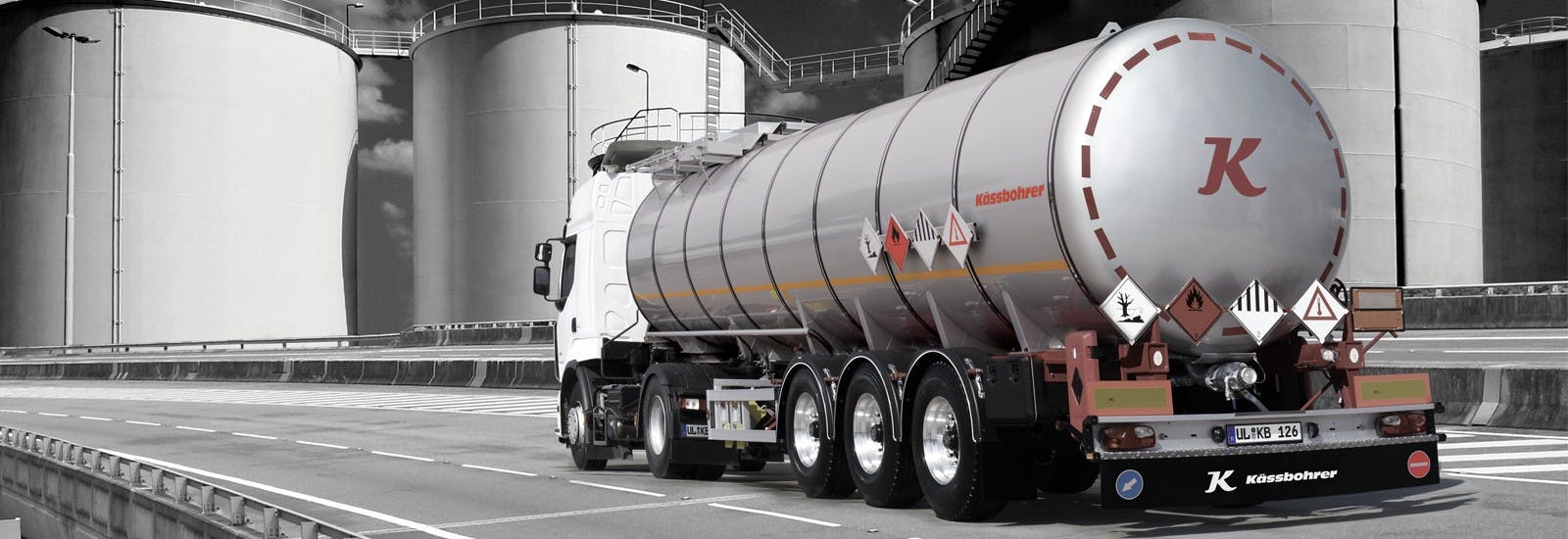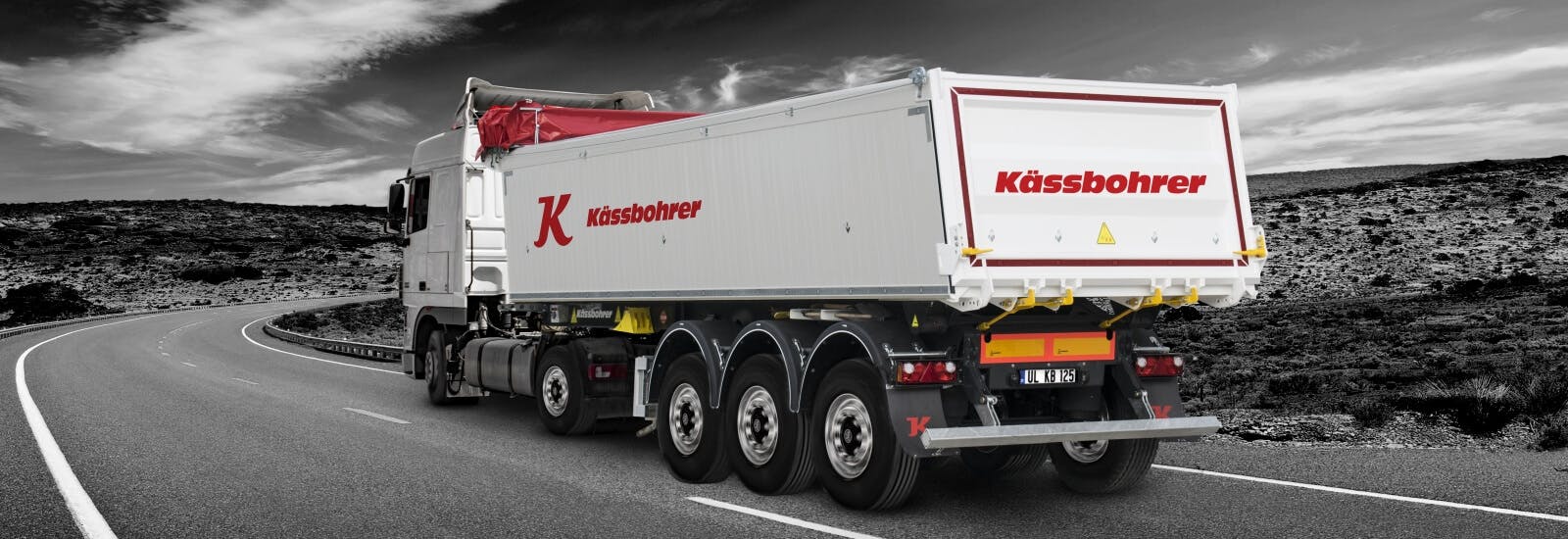Electrified Trailers: On the Quest for Zero-Emission Transport, Stakeholders Inform on Developments
IAA Hannover, September 18 2024 | At IAA Transportation 2024, Kässbohrer’s board member İffet Türken, representatives of automotive technology companies ZF and BPW from Germany, intermodal transportation company Ewals Cargo Care from the Netherlands and stakeholders from Luxemburg’s railway company CFL as well as from TAPA, the supply chain security association, all agreed: The European Commission and national vehicle and road authorities were missing in Kässbohrer’s K-Expert Talk titled “Future Outlook: Electrification & Intermodal” as most valuable stakeholders to scale up electrified vehicles.
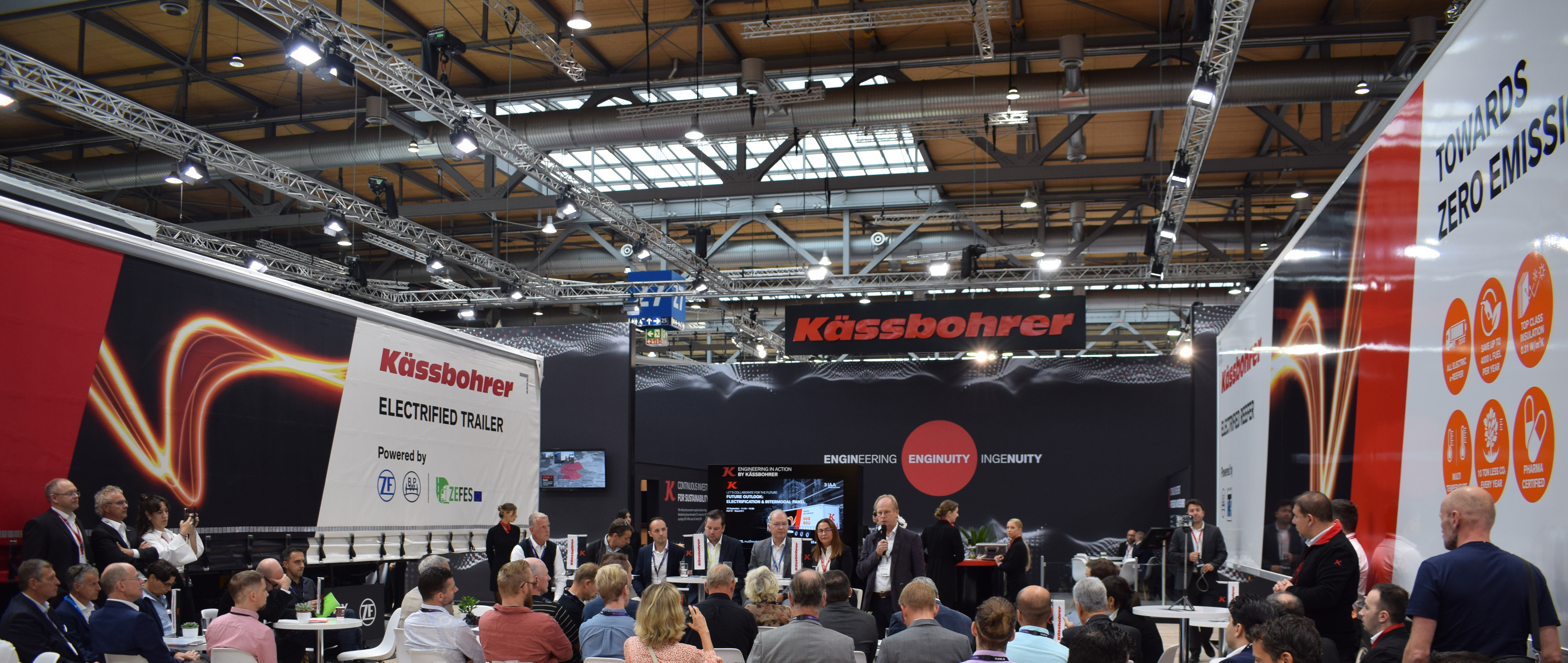
The overall goal of electrification is to contribute to zero emissions – zero emissions CO2 equivalents, as moderator Ben Kraaijenhagen, Technical Copordinator of the ZEFES project at Vrije Universiteit Brussels, stated precisely, and introduced into the discussion at Kässbohrer’s IAA stand. ZEFES is short for “Zero Emissions flexible vehicle platforms with modular powertrains serving the long-haul Freight Eco System”. The EU-funded project has officially started in 2023, will last for 3,5 years and will contribute to the aims and objectives set out in the Green Deal and the 2ZERO partnership, where Europe commits itself to reduce emissions by 55% in 2030 with Fit for 55 then be the first CO2-neutral continent by 2050.
Pointing to the new E-Reefer by Kässbohrer and the electrified curtainsider with recuperation and traction enabling ZF TrailTrax system on the Kässbohrer stand, Kässbohrer’s İffet Türken emphasized the company’s commitment to sustainability goals at the beginning of the talk hosted at the Kässbohrer stand at IAA, starting with environmental sustainability in manufacturing at Kässbohrer’s MegaCampus plant in Adapazarı: “Now, 92 percent of the production’s electricity comes from our own rooftop solar power plant.” She added: “Sustainability of transport can only be achieved by a collaboration amongst stakeholders from all participants in transport and logistics. There is need to engage our ecosystem not just to innovate but also implement the solutions. Electrification and intermodal and longer-higher capacity vehicles all contribute to successful transition as long as we discuss and develop together”
ZF’s Dr. Bernd Meurer explained the technology and advantages of ZF’s TrailTrax technology. The concept integrates its in-house developed 210 kW AxTrax 2 e-Axle, trailer EBS, and battery system box into a trailer, enabling the trailer to bring traction onto the road, and re-gain energy while braking thanks to recuperation, in addition to plug-in charging. The obstacle here is legislation though, as traction in the trailer has not been permitted yet, as traditionally the technology for safe traction was missing. But today, with modern technology traction is not only possible but brings advantages both while using combustion (ICE) trucks, and as range extension while using zero emission E-trucks. To scale up and make the solution feasible, changes to legislation are required.
BPW’s Daniel Twilling-Birkholz also stressed that the technology for electrified drive axles in trailers is already advanced, but that it will be necessary to see “how the business case can proceed” as soon as the authorities regulate this technology. He sees the industry one step ahead when it comes to recuperation axles for electrified trailer cooling: BPW’s ePower technology is implemented in Kässbohrer’s new E-Reefer, already available as K.SRI E with Kässbohrer’s proven qualities of its reefer series, acclaimed robustness and top-class insulation. E-Power is an integral part of the Thermo King AxlePower system, where the BPW recuperation axle provides constant electricity and battery charging when driving, while the cooling technology from Thermo King is making best use of the energy, yielding up to additional 4000 liters of fuel savings per year, up to a reduction of 10 tons in CO₂ emission.
Peter Bouten from logistics company Ewals Cargo Care, specialized in intermodal added the importance of intermodal transport, i.e. transport of trucks and trailers on trains and ferries, for reaching zero emission targets. E-trailers need to be compatible with intermodal. To achieve the goals of the sustainability of the transport sector, it is important to recognize and stimulate the benefits of intermodal transport. By making an exception for combined transport in the VECTO regulation, we can promote the use of innovative technologies such as the E-trailer and simultaneously reduce CO₂ emissions in the transport sector.
Ewals is also a partner for Kässbohrer in testing longer, higher capacity vehicles in the Netherlands, hereby contributing to Kässbohrer’s development of the 32 m long Super Eco Combi (SEC), as a commonly accepted, safe, sustainable, and efficient vehicle that helps the sector to meet its CO2 emission goals.
On the importance of intermodal, Marc Valette from CFL Multimodal the intermodal unit from Luxemburg’s railroad company brought in the perspective of a railroad subsidiary focused on intermodal. A big synergetic advantage was outlined by Valette: There are already intermodal routes across Europe where 40% Co2 emission reduction is achieved, electrification should take advantage of already existing routes and work in combination. Furthermore charging the trailer while on the rail wagon could be possible in the future, pending testing and approvals, that would mean losing no time for charging, and CO₂ free emission both on rail and road. The charging capacity on the wagon would be significantly less as the journeys presents with longer time for charging.
Electrification rather being a chance for added security was the learning from what Markus Prinz from TAPA (Transported Asset Protection Association) described as relevant issues: registering geo-coordinates, even geo-fencing would be capabilities that could be integrated easier with advanced electrification technology in the trailer. But charging times and more frequent stops would also require high standards and their application for secure parking. Here, the TAPA PSR (Parking Security Requirements) and EC SSTPA (Safe & Secure Truck Parking Areas) should also be more strongly demanded and/or clearly supported by legislators like the EU, in collaboration with charging infrastructure and charging technology providers.
The elephant in the room, as presented by Ben Kraaijenhagen, the Technical Copordinator of the ZEFES project at Vrije Universiteit Brussels, who moderated the vivid discussion: How to achieve a CO2 emission reduction of 45 percent by 2030 whilst road transport is still growing and how to scale up?
Not only Ben Kraaijenhagen, but voices from the audience as well emphasized the importance intermodal: Rail becomes more and more present in continental long-haul transport with semi-trailers. Train + zero-emission trucks with zero-emission trailers for final distribution are a way for an efficient green and sustainable supply chain. Ben Kraaijenhagen added: “We see a positive impact on the use of intermodal loading units and –trailers with environmental benefits beyond the carbon footprint and economic benefits.”
"According to the ZEFES expert, resolving the challenges in European legislation will support scaling up zero-emission trailers, and the development of new business models to achieve return of investment.
ZEFES continues to make Zero Emissions vehicles ready and feasible taking into account the intermodal possibilities while at the same time addressing transported asset security with expert project partners. The project will conclude in 2026."

